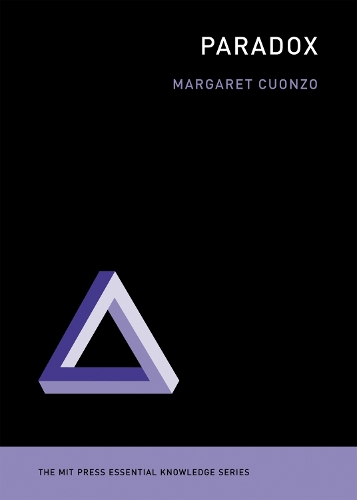
Paradox
(Paperback)
Publishing Details
Paradox
By (Author) Margaret Cuonzo
MIT Press Ltd
MIT Press
14th February 2014
United States
Classifications
General
Non Fiction
165
Physical Properties
Paperback
240
Width 127mm, Height 178mm, Spine 14mm
249g
Description
An introduction to paradoxes showing that they are more than mere puzzles but can prompt new ways of thinking.Thinkers have been fascinated by paradox since long before Aristotle grappled with Zeno's. In this volume in The MIT Press Essential Knowledge series, Margaret Cuonzo explores paradoxes and the strategies used to solve them. She finds that paradoxes are more than mere puzzles but can prompt new ways of thinking. A paradox can be defined as a set of mutually inconsistent claims, each of which seems true. Paradoxes emerge not just in salons and ivory towers but in everyday life. (An Internet search for "paradox" brings forth a picture of an ashtray with a "no smoking" symbol inscribed on it.) Proposing solutions, Cuonzo writes, is a natural response to paradoxes. She invites us to rethink paradoxes by focusing on strategies for solving them, arguing that there is much to be learned from this, regardless of whether any of the more powerful paradoxes is even capable of solution. Cuonzo offers a catalog of paradox-solving strategies-including the Preemptive-Strike (questioning the paradox itself), the Odd-Guy-Out (calling one of the assumptions into question), and the You-Can't-Get-There-from-Here (denying the validity of the reasoning). She argues that certain types of solutions work better in some contexts than others, and that as paradoxicality increases, the success of certain strategies grows more unlikely. Cuonzo shows that the processes of paradox generation and solution proposal are interesting and important ones. Discovering a paradox leads to advances in knowledge- new science often stems from attempts to solve paradoxes, and the concepts used in the new sciences lead to new paradoxes. As Niels Bohr wrote, "How wonderful that we have met with a paradox. Now we have some hope of making progress."
Author Bio
Margaret Cuonzo is Associate Professor of Philosophy and Coordinator of Humanities at Long Island University, Brooklyn.
